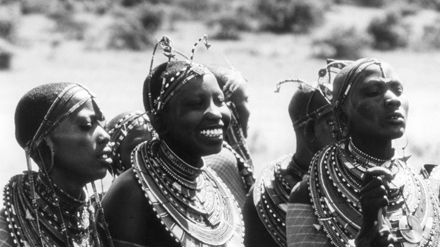
Please note: This was screened in June 2025
Melissa Llewelyn-Davies’s groundbreaking films on the Maasai (1974–1994) have become some of the most influential works in the history of ethnographic cinema. The Women’s Olamal remains one of the most-discussed examples of filmmaking in the discipline.
Filmed in Loita, a Maasai region split between Kenya and Tanzania, the documentary follows the lead-up to a spectacular women-centred fertility ceremony that—while celebrated as a traditional practice—is complicated by intergenerational tensions, the politics of gender, and the borders drawn up across the land.
The film centres on four women at different stages of life and fertility: Nolpiyaya, Kisaju, Nolmeeyu, and Kisaro. Through their voices and daily experiences, the film attempts to reveal the stakes and struggles of women where fertility equates to status, love, and survival. The Women’s Olamal continues to raise urgent questions about women’s agency and ethnographic authorship. Screening this restored version offers an opportunity not only to revisit Llewelyn-Davies’s influence, but to critically engage with the legacy of feminist anthropology on screen.
With thanks to the BFI National TV Archive.
